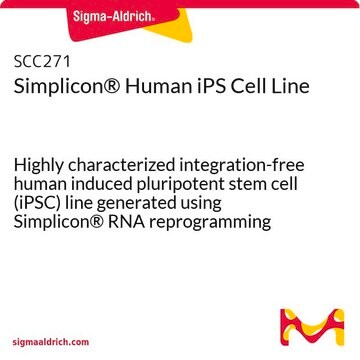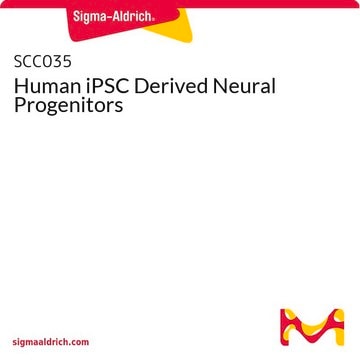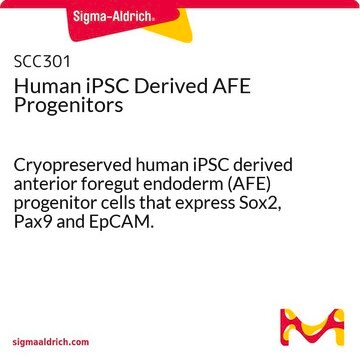Recommended Products
biological source
human
form
liquid
growth mode
Adherent
karyotype
2n=46
morphology
elongated/polarized, neuronal
shipped in
dry ice
storage temp.
−196°C
Cell Line Description
Control line derived from the parental XCL-1, an integration-free iPSC line
Application
These products provide unique and versatile tools for the study of central nervous system (CNS) disorders, such as Alzheimer′s disease (AD), Parkinson′s disease (PD), autism, schizophrenia, and amyotrophic lateral sclerosis (ALS), as well as for drug screening and toxicology applications in the neural space.
Features and Benefits
This product contains cryo-preserved, pre-differentiated mixed population neurons derived from a footprint-free, karyotype normal human iPSC line. It was designed for customers to generate mature neurons using the optimized maturation medium and supplement (NEUR1050, NEUR1051 sold separately). Mature neurons can be obtained within 8 days. The neurons can be seeded on various culture vessel formats including 96 well plates on either glass or plastic surfaces and cultured as adherent cells. Shortly after seeding, the cells proliferate slightly for up to 3 days and show extensive neurite outgrowth and proper neuronal morphology. In general, at 8 days post-seeding, the cell population will contain ≥98% neurons and ≤1% Glial Fibrillary Acidic Protein (GFAP) positive astrocytes.
Culture Medium
User must also purchase Neuronal Maturation Medium, NEUR1050 (50mL) or NEUR1051 (250mL). Sold separately.
Subculture Routine
No subculture routine is necessary. See technical bulletin for additional details.
Storage Class Code
10 - Combustible liquids
WGK
WGK 3
Flash Point(F)
Not applicable
Flash Point(C)
Not applicable
Certificates of Analysis (COA)
Search for Certificates of Analysis (COA) by entering the products Lot/Batch Number. Lot and Batch Numbers can be found on a product’s label following the words ‘Lot’ or ‘Batch’.
Already Own This Product?
Find documentation for the products that you have recently purchased in the Document Library.
Anastasia Efthymiou et al.
Journal of biomolecular screening, 19(1), 32-43 (2013-09-11)
Rapid and effective drug discovery for neurodegenerative disease is currently impeded by an inability to source primary neural cells for high-throughput and phenotypic screens. This limitation can be addressed through the use of pluripotent stem cells (PSCs), which can be
Yiping Yan et al.
Stem cells translational medicine, 2(11), 862-870 (2013-10-12)
Human pluripotent stem cells (hPSCs), including human embryonic stem cells and human induced pluripotent stem cells, are unique cell sources for disease modeling, drug discovery screens, and cell therapy applications. The first step in producing neural lineages from hPSCs is
Our team of scientists has experience in all areas of research including Life Science, Material Science, Chemical Synthesis, Chromatography, Analytical and many others.
Contact Technical Service








